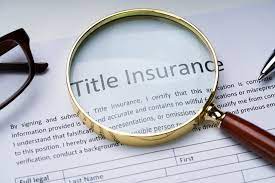Basic car insurance provides the minimum required coverage to legally operate a vehicle, ensuring financial protection in case of accidents or damage. While it is important to consider additional coverage options based on your needs, basic car insurance offers a budget-friendly solution for many drivers. By exploring your options and finding cheap basic car insurance that meets your state’s requirements, you can enjoy peace of mind knowing that you’re financially protected on the road. In this article, we will guide you through the fundamentals of basic car insurance coverage and help you understand its importance. Whether you’re wondering, “What is basic car insurance?” or seeking specific information about basic car insurance in Florida, we’ve got you covered.
What Is Basic Car Insurance?
Basic car insurance refers to the minimum coverage required by law to legally operate a vehicle. It typically includes liability coverage, which pays for damages to other people and their property in accidents caused by the insured driver. Basic car insurance may vary by state in terms of coverage limits and optional coverages available. It is important to note that while basic car insurance provides the minimum required coverage, it may not fully protect the insured driver in all situations. Additional coverage options, such as comprehensive and collision coverage, can be added for enhanced protection.
Basic Car Insurance Coverage
Basic car insurance coverage typically includes liability coverage, which pays for damages to other people and their property in accidents caused by the insured driver. It may also include personal injury protection or medical payment coverage for medical expenses resulting from an accident. However, the specific coverage and limits may vary depending on the insurance policy and state regulations. Basic coverage is to meet the minimum legal requirements, but it may not provide comprehensive protection for the insured driver or their vehicle. Additional coverage options, such as collision and comprehensive coverage, can be among, for more extensive protection.
Basic Car Insurance in Florida
Basic car insurance in Florida typically includes the minimum coverage required by law, which is $10,000 in personal injury protection (PIP) and $10,000 in property damage liability (PDL) coverage. Personal injury protection covers medical expenses and lost wages for the insured driver and passengers, regardless of who is at fault. Property damage liability covers damage to other people’s property caused by the insured driver. These minimum coverage limits may be insufficient in more serious accidents, so many drivers choose to purchase additional coverage options for more comprehensive protection.
Cheap Basic Car Insurance
Basic car insurance that is inexpensive and complies with all legal requirements is cheap insurance. It often comes with essential liability protection against both property damage and bodily injury. There are ways to find less expensive solutions. Even if insurance costs can vary according to the driver’s age, driving history, and location. These include checking prices from several insurance companies, keeping a clean driving record, choosing reliable vehicles, and utilizing any discounts offered. It’s crucial to remember that while inexpensive basic auto insurance may have cheaper premiums and more limited coverage, drivers should take their needs and potential hazards into account when selecting a policy.
Also read: Cheapest No Down Payment Car Insurance In 2023
What Is the Most Basic Car Insurance?
The most basic car insurance typically includes
- Liability Coverage: This is the most basic and mandatory coverage that pays for injuries and damages to others in an accident you cause.
- Collision Coverage: This coverage pays for the repairs or replacement of your own vehicle in the event of a collision with another vehicle or object.
- Comprehensive Coverage: This coverage protects your vehicle against non-collision incidents such as theft, vandalism, natural disasters, or hitting an animal.
- Personal Injury Protection (PIP): Regardless of who was at blame for the collision, PIP coverage covers your and your passengers’ accident-related medical bills, lost earnings, and other expenditures.
- Uninsured/Underinsured Motorist Coverage: If you get into an accident with a motorist who doesn’t have insurance or has insufficient coverage, this coverage will protect you.
- Medical Payments Coverage: Similar to PIP, medical payments coverage pays for medical expenses resulting from an accident, regardless of fault.
- Gap Insurance: Gap insurance covers the difference between the actual cash value of your vehicle and the amount you owe on a loan or lease if your vehicle is totaled or stolen.
It’s important to note that the specific coverage options and limits may vary depending on your insurance provider and the state you reside in. It’s recommended to consult with an insurance professional to understand the coverage that best suits your needs.
Also, read: 10 BEST CAR INSURANCE COMPARISON SITES IN 2023
Which Type of Insurance Is Best for Cars?
It’s critical to take your budget, driving style, and vehicle worth into account. This is when selecting the appropriate kind of auto insurance. As it offers significant protection against a variety of dangers, such as theft, vandalism, natural catastrophes, and accidents unrelated to collisions, comprehensive coverage is strongly advised. You will be protected financially by this coverage in the event of unforeseen circumstances.
However, liability insurance is an essential part of auto insurance. It aids in defraying the costs of any harm or losses you might cause to someone else in an accident. Since it safeguards other motorists on the road, this coverage is frequently required in the majority of states. Additionally, collision coverage is something to think about, particularly if your car is new or has a high value. Regardless of who was at fault, it protects your car from losses sustained in collisions with other vehicles or objects.
Another choice to take into consideration is uninsured/underinsured motorist coverage. In the event that you are in a collision with a driver who has insufficient insurance or no insurance at all, it offers protection. The best kind of auto insurance for you will ultimately depend on your individual requirements and objectives. To find the best solution for your circumstances, it’s advised to examine several coverage alternatives and speak with an insurance
What Is the Meaning of Comprehensive Insurance?
Comprehensive insurance offers broad protection for your vehicle and is a comprehensive type of auto insurance coverage. It covers a variety of non-accident-related incidents that could harm or total your car. This is in addition to the standard liability and collision coverage. This covers occurrences like burglaries, vandalism, damage from hurricanes or floods, fallen objects, fire, and more. You may rest comfortably knowing that you are financially covered against a variety of hazards. However, that is out of your control with comprehensive insurance.
For people who want complete protection, it is crucial coverage. Because it aids in covering the price of repairing or rebuilding their vehicle. It is advised for people who reside in regions where there is a high danger of theft, severe weather, or other risks covered by comprehensive insurance. You can increase your comfort in knowing you’re covered in a variety of situations. This is by adding this coverage to your auto insurance policy, providing you with financial stability and peace of mind.
Read: WHAT IS HAZARD INSURANCE? All You Need To Know
What Is the Best and Cheapest Insurance for Cars?
It is critical to consider your specific demands and budget when looking for the best and cheapest vehicle insurance. While there is no one-size-fits-all solution, there are a few approaches you can take. To begin, check quotes from various insurance companies to discover the most reasonable prices. Look for discounts and consider grouping your auto insurance with other policies to save even more money. Consider the coverage options that are important to you while rejecting any unneeded extras that may raise the cost. Keep in mind that the best insurance for you may not be the cheapest. However, there must be a balance between cost and coverage. You can find the best and most economical vehicle insurance that matches your demands. This is by conducting thorough research and knowing your needs.
What Is the Lowest Form of Car Insurance?
When it comes to finding the best and cheapest car insurance, it’s important to consider your individual needs and budget. While there isn’t a one-size-fits-all answer, there are a few strategies you can follow. First, compare quotes from multiple insurance providers to find the most affordable rates. Look for discounts and consider bundling your car insurance with other policies for additional savings. Additionally, consider the coverage options that are essential for you while excluding any unnecessary extras that may increase the cost. Keep in mind that the best insurance for you may not necessarily be the cheapest. It’s important to strike a balance between cost and coverage. By doing thorough research and understanding your needs. You can also find the best and most affordable car insurance that meets your requirements.
FAQs
Can I drive any car with full coverage?
Don’t assume that just because you have comprehensive auto insurance you can drive any car. In fact, if you drive someone else’s automobile without first making sure you’re insured, you may be breaking the law.
Can I make a claim on my insurance if I damage my own car in the UK?
Yes, as long as you have comprehensive car insurance that covers damage to your vehicle if the collision was your responsibility. If you simply have third-party coverage or third-party fire and theft, you are not covered if you damage your vehicle.
What is the significance of insurance?
Insurance plans are valuable to anyone wishing to safeguard their family, assets/property, and themselves from financial risk/losses: insurance plans will assist you in paying for medical crises, hospitalization, the contraction of any illnesses and treatment, and future medical care.
Related Articles
AVERAGE CAR INSURANCE COST: Detailed 2023 Guide
COLLISION INSURANCE: Meaning & Coverages
CAPITAL ONE CAR RENTAL INSURANCE: How It Works






